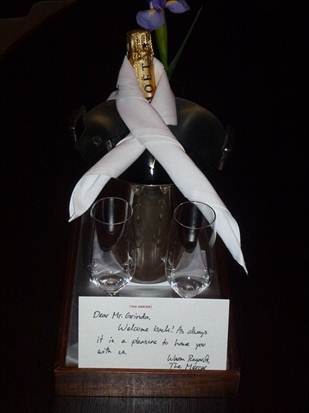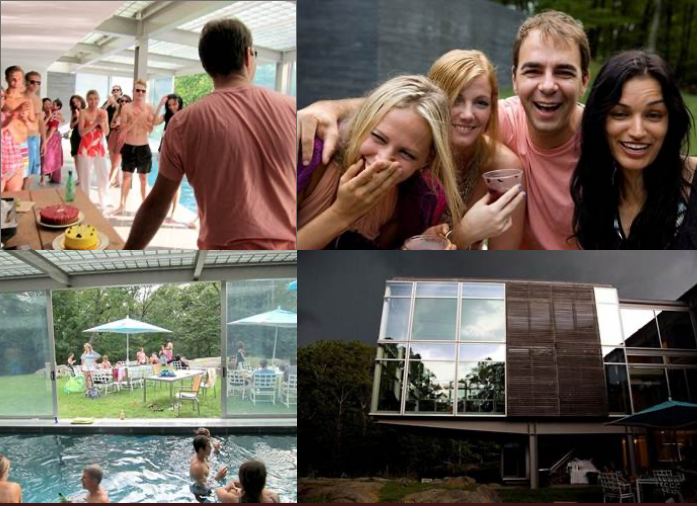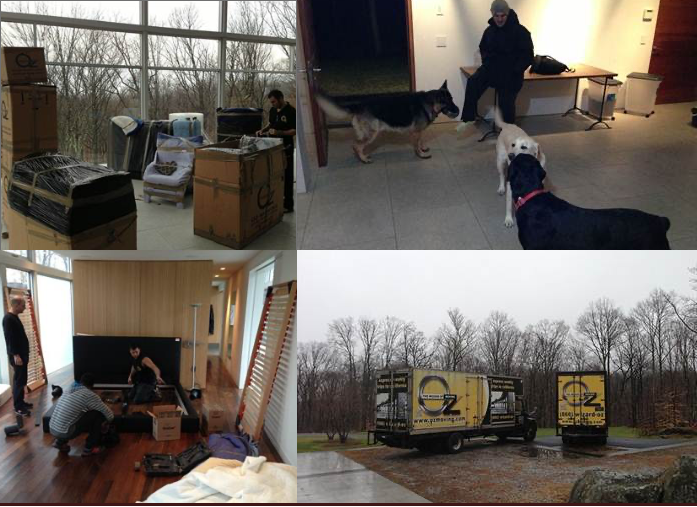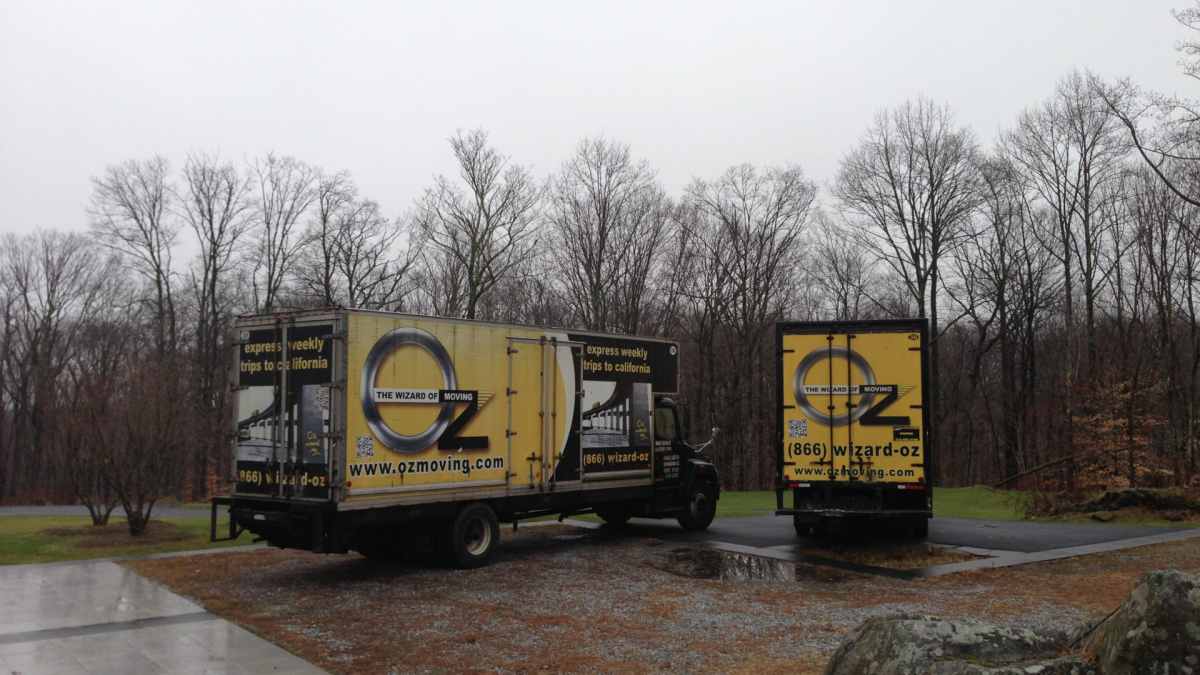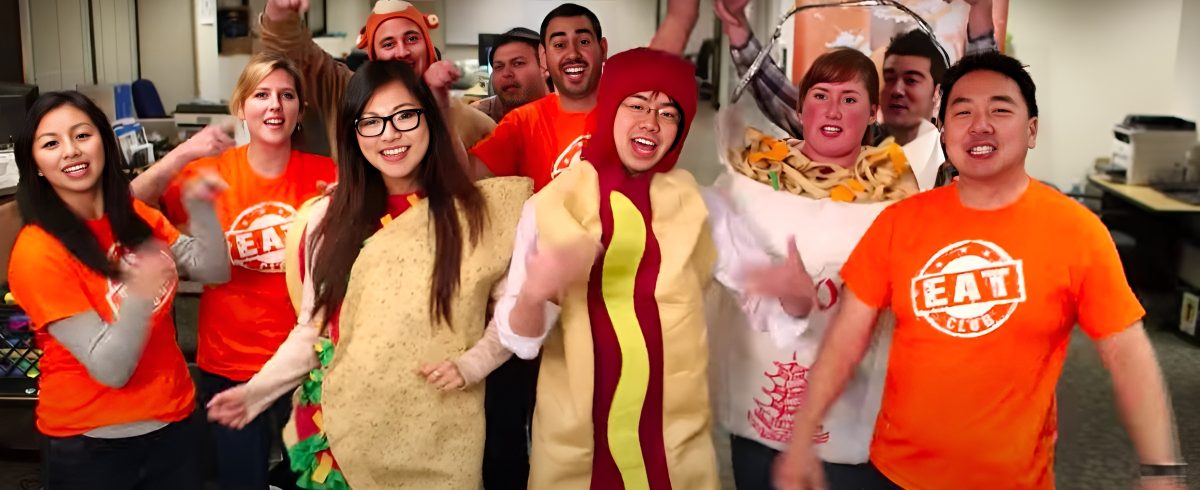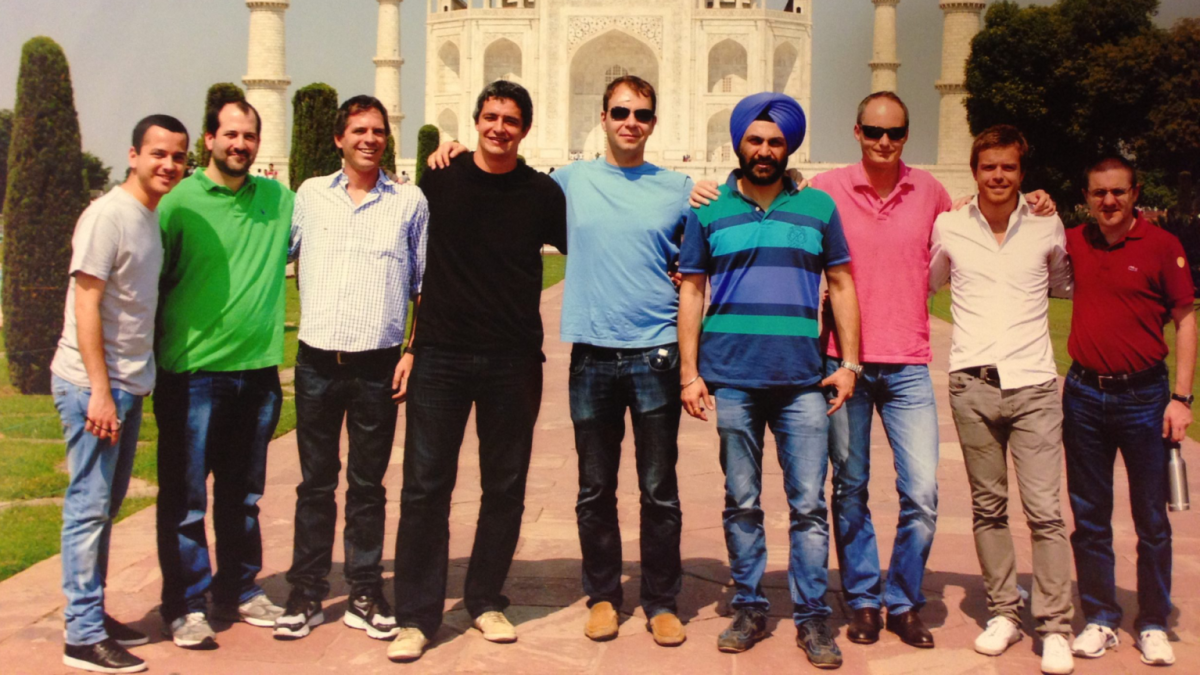I decided to relinquish my position as Co-CEO of OLX. My partner Alec is staying as CEO. Given how much of my life and soul I poured in the company and the many friends I have working there, I did not take the decision lightly. I wrestled with conflicting feelings and wanted to walk you through my thought process.
The Origin Story: Aucland & Deremate
Before I walk you through the decision, it is worthwhile taking you back to the beginning of the story. The story actually began in 1998. I had decided to leave McKinsey to build an Internet startup. I was evaluating ideas when my friend Jeff Kaplan showed me the eBay site. It was love at first sight. The economist in me immediately saw the appeal of creating liquidity and bringing price discovery to fragmented and opaque markets. At the same time I realized it was one of the few ideas a capital constrained 23 year old could hope to bring to fruition. Unlike my other potential ideas, building a French version of Amazon, eTrade, Yahoo, Priceline, etc., it did not require inventory, complex supply chains, banking licenses, significant capital, etc. I quit McKinsey, sold everything I had and moved to France to build an eBay copy for Southern Europe.
I named the project “Alibaba” imagining the site would be the treasure trove of lore for consumers. I started developing the site with my partner Sasha Fosse-Parisis and set in motion a content acquisition strategy to guarantee we had more items on sale at launch than any of our competitors. Unfortunately the seemingly tiny Chinese company that owned the Alibaba.com domain name let my repeatedly desperate pleas and offers for the domain go unanswered.
After evaluating a slew of potential names, I opted for OLX. It lacked the magical quality of Alibaba, but was a simple to spell three-letter name. It could stand for OnLine eXchange and could be purchased for $10,000. We were all set to launch in February 1999 when disaster struck. One of our biggest competitors renamed itself from Quixell to QXL. Given how close QXL and OLX are and that they had launched first, we would have been accused of plagiarism and potential trademark violation, even though nothing was further from the truth.
We only had weeks to find a new name. Simultaneously, I was trying to hire an online advertising agency. I was hesitating between two that had really impressed me. Unable to decide which I liked best I told them that the first one of them to find a name for the site would get the business. Gael Duval from Alpaga came up with the name “Aucland.” I did not love it, but it could do in a pinch. It could stand for Auctionland and most importantly the domain was free and the trademark was available. We launched in April 1999 with the name Aucland. I kept the OLX name in the back pocket for a rainy day. I actually sold it a few years later to someone trying to build an online legal exchange, but they defaulted on their payment and returned the domain to me after a few years.
Funnily enough, the rest of the OLX story has its roots in Aucland. I was introduced by Alex Hoye, a McKinsey colleague, to a team of HBS & GSB grads from BCG who were planning to do something on the Internet in Latin America. I met them in New York in June 1999 as I was flying back from a San Jose meeting with eBay. Coincidentally, I also met the Samwer brothers on that trip as they were discussing selling Alando to eBay. The Latin American team had come to New York in full force with its 12 co-founders. It was led by none other than Alec Oxenford, who would eventually become my partner in OLX. I also met Jose Marin, who is now my angel investing partner, in that fateful meeting!
They were hesitating between two ideas, one of which was launching an eBay for Latin America. I told them I had been through the exercise a year earlier and that there was no hesitation: eBay was the way to go and that I could provide them with the technology and business plan to launch. We agreed on the parameters of a deal and we started working on launching them. They sent two engineers to our Sophia-Antipolis office, Fernando Beck and Eduardo Rivara, to prepare the site for launch.
Deremate launched less than 2 months after our New York meeting in August 1999 on the Paris-based servers of Aucland. To give you a sense of the extent to which we liked and trusted each other, despite having only met once in person, when we launched Deremate we only had a handshake deal and had not even documented the agreement! Arguably that was scarier for them given that they completely depended on me, but I suppose it did not hurt that I was 24 and looked (and was) completely innocent. (Of course, I would like to believe I am still just as innocent 🙂
The launch traffic of Deremate was unlike any we had ever seen before and it crashed our servers! We were off to the races! Sasha trained Fer and Edu and helped them eventually migrate to their own hosting in Miami later such that they could be technologically independent.
After I sold my stake in Aucland to Bernard Arnault in October 2000, we went down our separate paths. I built Zingy, while Alec kept running Deremate. As fate would have it, our paths were meant to cross again. I sold Zingy in May 2004 and stayed on as CEO until November 2005. By early 2005, despite the fantastic growth of the company, I was starting to tire of the antics of the acquiring Japanese company, not to mention their repeated refusal to let me invest the profits in the company and to make acquisitions (e.g.; we could have bought Shazaam’s US business for $1 million!).
New Beginnings
I decided to start a new business. I became an entrepreneur because I love building something out of nothing, not in order to be successful. Success came as a by-product of doing what I loved. As such, I did not even consider retirement, especially at the tender age of 30. I briefly toyed with the idea of launching a Facebook for the rest of the world. Fortunately I dropped that idea as the Facebook for the rest of the world is none other than Facebook. I then toyed with the idea of building Vente Privee for the US. Vente Privee was already an extraordinarily successful private sales site in France and no US equivalent existed (that was before Gilt, Ruelala and Ideeli launched). I seriously flirted with the idea before deciding that as the least fashion savvy person in the world, I should probably not launch a fashion company. On top of that running a private sales site would have entailed learning new skill sets in sourcing, merchandising, supply chain management, brand management and much more. Of course Kevin Ryan later proved that you can succeed in the category without any personal fashion sense, but having just operated for 5 years in a category and industry I did not previously know and enjoy (music, entertainment and telecommunications), I did not want to repeat the experience.
I decided to go back to my original love and to look for opportunities in marketplaces. Craigslist was just becoming a phenomenon in the US. It was clear that paid print classifieds were rapidly being eclipsed first by paid horizontal online sites like Monster and then by free horizontal classified sites like Craigslist.

That transition was well under way in the US and in a number of countries in Western Europe, but had yet to happen in many countries, especially in emerging markets.
I first reached out to Craigslist to see if I could convince them to let me take the lead for them in terms of product improvement and international deployment. As my advances were spurned, I started realizing that Craigslist did not have the wherewithal or ambition to take on this challenge. Simultaneously, for a host of reasons eBay seemed gun-shy and unwilling to pursue this opportunity. I knew the time had come to pounce.
Given the importance of liquidity in marketplace businesses, I started looking for a company to buy to accelerate the growth of this new project. While at Zingy, I had randomly run into an old friend, Jeremy Levine, who had been in the office next to mine at McKinsey. That chance encounter had come too late in the life of Zingy to be fruitful, but we vowed to see if we could work together. We analyzed the classified market and approached Yannick Pons of Vivastreet, which at the time was the leading free classified site in France, to see if he would let us invest in his company. We came close to a deal multiple times, but ultimately Yannick did not pull the trigger.
In the fall of 2005, after a few months of trying to reach a deal, I decided to build the business de novo. I quit Zingy on November 30, 2005 and set about building OLX. To launch rapidly, I wanted to build a reasonably large tech team rapidly. At Zingy, I had been struggling to hire tech talent. H1B visa allocations had been significantly decreased and I had lost countless Chinese and Indian programmers to the idiocy of the US immigration regime. Even those who were renewing previously approved visas were entered into a lottery with less than a 50% chance of getting their H1B! After all the time, investment, training and effort I had spent over the course of 4 years to build a great 85 person strong New York based tech team, losing them was heart wrenching for me on top of being life changing and disrupting for them! I did not relish the idea of looking for 20-30 great engineers in New York.
Timing is important in life!
Coincidentally, Alec had just sold Deremate. As Deremate became integrated in Mercadolibre, it freed up a large portion of the tech talent there, a team that understood marketplaces, I trusted and that I had worked with before. Availability of labor mattered more to me than anything and it helped that the war for talent was less intense in Argentina than in the US and that few companies offered a cool Google-type work environment. The fact that technical talent was 5-6x cheaper than US talent at the time (dollar inflation in Argentina has since made it less attractive) and that the country is in a similar time zone to the US was just icing on the cake.
In order to manage operations out of Argentina, I needed a local partner I could trust. I went to Argentina for the first time in January 2006 and spent a few weeks with Alec to get to know him better. We went hiking, climbing, biking, etc. in Cumelen and Calafate. When it was all said and done we agreed: we would be co-founders and co-CEOs of OLX.
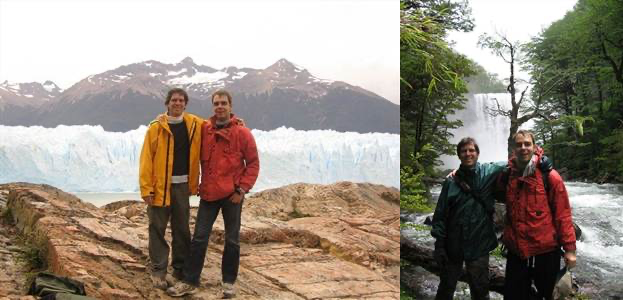
Fer and Edu became OLX’s first programmers. I also recruited the best people I had worked with before. William, one of my best friends, had first been country manager of France for Aucland. He then became VP of Marketing for Meetic, the Match of Europe. He joined as VP of Marketing. Ariel who had been Zingy’s amazing VP of Finance joined as CFO. Jeremy Levine at Bessemer funded us.
We merrily embarked on the new adventure. We incorporated the company in March 2006 and launched the site in June 2006.
You can see my first hand drawn home page from early 2006 below:
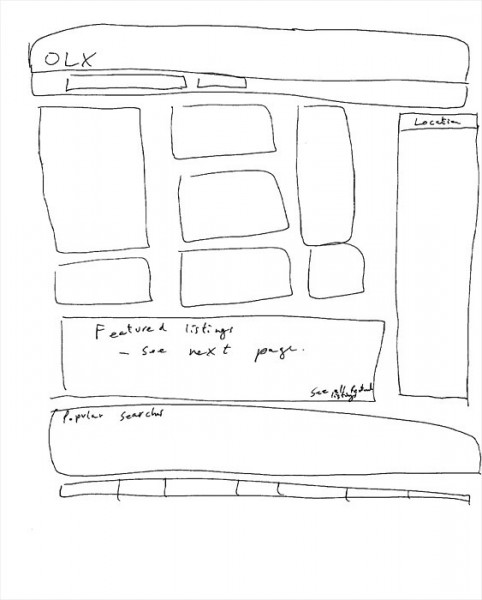
Looking for luck in all the wrong places!
When we launched we did not really know what was going to work. We had a sense that there were a number of opportunities:
- Craigslist was not investing in its product and had mediocre content quality. We hoped that a superior product and cleaner content might allow us to take off in the US despite Craigslist’s traction.
- eBay was facing a seller revolt given its repeated price increases. We hoped that by introducing 100% free marketplace transactions, we might be able to take some liquidity from eBay in our “For Sale” category.
- Most of the free classified sites that had launched around the world had just been put up by engineers who had not thought through how to build liquidity, have content quality control or have the resources to really scale them. We felt we might have a shot at displacing them.
We were getting a fair amount of grief from investors for our diffuse strategy of trying to be Craigslist 2.0, “FreeBay” and Craigslist for the rest of the world all at once. I am actually happy we tried everything. Without trying, we would probably have not ended up pursuing the right opportunity.
In hindsight we were incredibly naïve to even think we had a real shot with the first two opportunities. Marketplace businesses are all about having a critical mass of buyers and sellers. Despite their limitations Craigslist and eBay had that. We should have realized that there was no way to take them on head on. The only way to attack them is by going deep in a category that requires something they are not offering and unlikely to offer easily.
Stubhub and Airbnb are two such examples amongst many.
Stubhub offered:
- Seating maps such that buyers would know where they were sitting and the view from there.
- An authenticity guarantee to give buyers comfort the tickets were real.
Those product and process changes could never hit eBay’s priority list for just one category so Stubhub ran away with the category until eBay bought them.
Likewise, Airbnb realized that subletting rooms by the night on Craigslist was fraught with difficulty:
- It was hard to manage availability
- Organizing payments was difficult
- It’s hard to figure out if the host is reliable and truthful about the condition of the apartment, while it’s hard for the host to figure out if the traveler is trustworthy and not going to trash the place (not to mention one party potentially raping and/or killing the other)
Airbnb addressed all those issues:
- They have a built in availability calendar
- They use the social graph and social proof to build trust
- They have reviews of hosts and travelers
- They intermediate the payment process
Users are more than willing to pay their 13% commission for the convenience (versus doing it for free on Craigslist). Given the relatively small size of vacation rentals or short term sublets on Craigslist, offering those 4 functions just for this category would not make sense.
In those early days, we never seriously considered going vertical. When creating liquidity proved too expensive in the US, we decided to focus on building Craigslist for the rest of the world instead.
Throw enough things on the wall and something will stick!
We first had to decide whether we wanted to be a classified search engine, a proper classified site or a hybrid of the two. We chose to be a transactional site and not just a search engine. In many ways it would have been easier to be a classified search engine. You can easily get more content either through feeds or scraping. You don’t need to worry about content quality because the transactional sites are taking care of the spam and scams. However, we felt that ultimately we would not be able to create a brand and enough value for consumers if we were a search engine – especially if the classified market concentrated as marketplace businesses have a tendency to do. Besides we felt it was a role Google might want to try to play.
That decision made, we launched in 96 countries and 51 languages. We again got grief from investors who thought we should concentrate our limited resources on a reasonably developed country like France. We fought back arguing that we wanted to maximize the opportunity for luck. Friendster had not planned to be big in the Philippines, it just happened. Likewise, Hi5 had gotten big in Peru and Portugal while Orkut had gained traction in Brazil and India. In none of these circumstances it had been deliberate, “it just happened.”
To make sure we launched with some content we built a content acquisition team in Buenos Aires. We approached car dealers, real estate brokers and employers who posted ads in newspapers and paid vertical sites suggesting they post for free on our site. To make their life simple, we told them we would take the content in whatever format they provided to other companies. Our only requirement was that the full ad was on our site without an external link. To bring buyers, we did long tail bidding for keywords on Google (e.g.; Red BMW 325i 1997 New Dehli) at very low CPCs targeting explicit goals in terms of cost per reply. We spent around $50k over 5 months in each country on a rolling basis; $5 million total given that we were in 96 countries.
As we started doing this something amazing happened. For no apparent reason, we really took off in Portugal. Most of the companies that we had been asked to focus on failed to take off, but we also got a modicum of traction in Brazil, India, Pakistan and most of Latin America and we started focusing there.
We “discovered” SEO
I have to admit no one in the company had heard or thought of SEO. We were getting traction despite essentially not being indexed in Google. We got lucky that two acquisitions we made brought two SEO experts in the company: Jordi Castello from Mundoanuncio and Markus Sander from Campusanuncios.
We basically were making every mistake in the text book: duplicate content, cloaking, you name it. It took them a while to convince us of the truth of their ways, but by early 2007, we decided to give SEO a shot and essentially re-architected OLX from the ground up to be SEO friendly.
The results were astounding and really juiced our customer acquisition, boosting the traction we already had in Latin America, India, Portugal and Pakistan. We essentially pursued an aggressive SEO strategy until 2010, weathering the various Google Panda rollouts and growing very rapidly.
By early 2010, we had crossed the 100 million unique visitors per month mark and looked to be very successful.
We realized that SEO was not enough
Around that time we started bumping more and more against a Norwegian publicly traded company called Schibsted. They had originally been a print media company, but had successfully migrated to online. They had dominated the free horizontal classified markets in Norway and Sweden since the early 2000s with Finn and Blocket and had expanded to France and Italy with LeBonCoin and Subito. They embarked on an aggressive international expansion around that time and we started overlapping in a number of countries.
To our dismay with aggressive marketing and a high content quality approach, they started gaining market share on us in some of our key markets starting with Portugal where we had thought we were impregnable. A similar strategy also proved successful in Russia where Avito copied the Schibsted playbook to the letter and ran away with the market.
Schibsted had been inspired by our success to expand internationally. In turn, we decided to replicate their tactics:
- Pre-moderate all ads to eliminate spam and scams, especially in the most recent ads (which was a problem with the post-moderation approach we had taken)
- Focus on engagement
- Remove all personal content
- Improve site speed
This is when Naspers came calling
Naspers is an extremely successful South African media company. They had migrated from print to pay TV and then to the Internet. Their claim to fame was a $50 million investment in Tencent in the early 2000s in China. This turned into a 35% ownership of Tencent whose market cap is now over $40 billion. They decided early on to place bets on Internet properties in large emerging markets, especially China, Russia, India and Brazil. They own around a third of Mail.ru, the largest portal in Russia, and most of Allegro and Buscape, respectively the eBay of Eastern Europe and the leading shopping comparison site in Brazil.
Funnily enough, after I sold my shares in Aucland to Bernard Arnault, he sold Aucland to QXL Ricardo. The company did a bakeoff and chose to use the Aucland technology platform for its operations. Naspers then bought QXL Ricardo (which owned Allegro) for $1.9 billion in 2008. To this day Ricardo, Switzerland’s largest online marketplace, still runs on the Aucland technology platform operated by Aucland’s Sophia-Antipolis tech team!
When Naspers approached us in 2010, we realized that the business was essentially a natural monopoly on a national level and that we had to be absolute leaders in a few strategic countries. To withstand the onslaught of Schibsted and well-funded competitors like Quikr in India, it made sense to get the support of a deep pocketed strategic backer.


Naspers further pushed us to focus on our key markets: Brazil, India, Portugal and Pakistan and challenged us to match Schibsted on user engagement and content quality.
The results have been nothing short of outstanding as the traffic graph from a few of our countries attests. I removed the scale not to disclose specifics to our competitors, but trust me on this one: the absolute page view numbers are big.


I am convinced now more than ever that OLX will win in several strategic countries.
So why leave?
It seems paradoxical to leave just as I am reaching certainty that OLX will be a multi-billion dollar company.
So why leave? My entrepreneurial spirit compels me to build my ideas into a new company now that OLX is all grown up and has an amazing management team in place to lead it forward. I find myself yearning for a new entrepreneurial adventure!
Also, the success Jose and I have had as angel investors is tempting us to consider creating a venture fund.
Lastly, for a mature company that is fully staffed with an amazing team, one CEO is enough. When I built OLX with Alec, we never talked about who would do what. We actually have overlapping skills being Ivy League educated consultants and auction site CEOs and each can do the work of the other. The role split happened automatically driven by our interests, geographic location (him in Buenos Aires and me in NY) and lifestyle choices.
I ended up being in charge of the product strategy, investor relations, front line M&A (identifying and reaching out to targets), business development and English PR. He took the lead on operations, post-merger integration and Spanish and Portuguese PR. We both jointly set the strategy.
It has often been said that it’s a bad idea to have co-CEOs and work with friends, but when you can make it work it’s much more powerful. You have a level of trust that does not exist in traditional business relationships. We never argued or disagreed and our friendship has never frayed. Likewise I am still close friends with William and Ariel despite working with them for many years.
Naspers actually proved to be a fantastic acquirer. They are the very opposite of the Japanese who had acquired Zingy. They are strategic, thoughtful and incredibly aggressive. I was pleasantly surprised and sometimes downright frightened by their aggressiveness, which is saying a lot given that it’s in my nature to be very aggressive. I can say with confidence that we would not be where we are today had it not been for Naspers investing.
At the same time, post-Naspers investing, the nature of my work started changing. I no longer had to manage investor relations. The M&A and business development roles disappeared as we started focusing on organic growth. Simultaneously, we started needing to have a structure and budgeting rigor commensurate to our size, not to mention being owned by a large publicly traded company. We were no longer building a new company, we were running a mature company, and for that one CEO is enough.
Simultaneously, further copying the Schibsted playbook, we decided to decentralize OLX operations and really empower local country managers. As such we transferred product strategy to local teams. I completely agreed and supported the strategic changes, but I also realized that to be effective in this new organization I would have to move to Buenos Aires, Sao Paulo or Delhi which I was loth to do. Fortunately, Alec already lives in Buenos Aires, so it was natural to transition the sole CEO role to him. I recently came back from a trip to the OLX offices in Delhi and found the OLX team energized and ready to conquer the world with Alec at the helm!
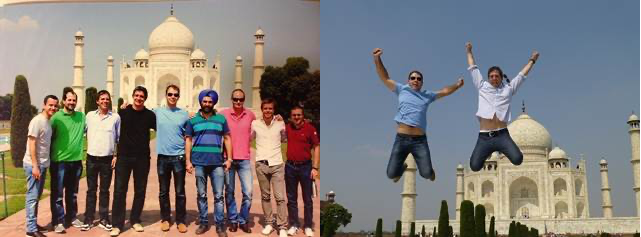
So what’s next?
Kitesurfing in Cabarete! 🙂 Beyond that stay tuned for news about the “new new thing”!
